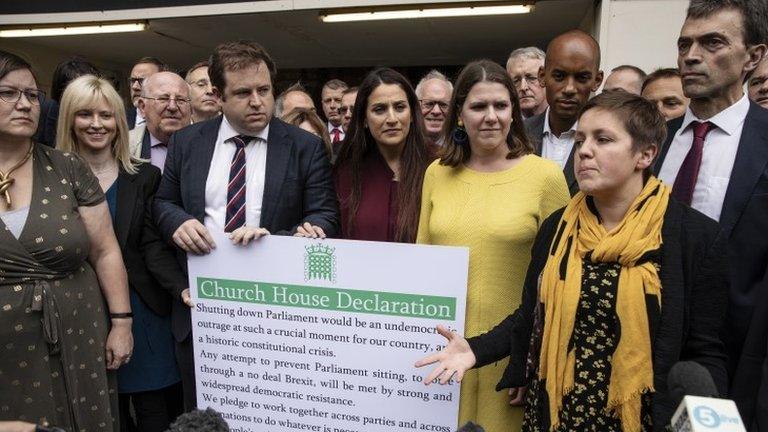Parliament shutdown sought 'in clandestine manner', said judges
- Published
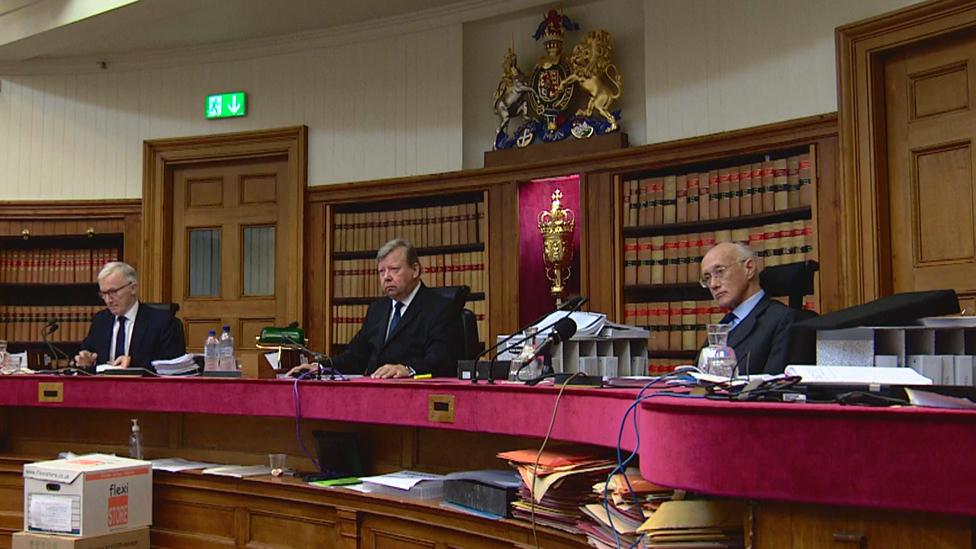
The panel of three judges were unanimous in finding that the prime minister's actions were unlawful
Details of the Court of Session judgement which ruled the suspension of parliament was unlawful have been revealed.
The 68-page document has been published giving the full reasons for the decision.
It revealed the three Inner House judges believed the move was sought in a "clandestine" manner.
They concluded that the "true reason" for the prorogation was to reduce the time available for scrutiny of Brexit.
Lord Brodie, Lord Carloway and Lord Young also thought none of the evidence explained why the shutdown needed to last for as long as five weeks.
On Wednesday, Scotland's highest civil court ruled that Boris Johnson's decision to suspend parliament was "improper" and "unlawful".
The case was brought by a group of more than 70 parliamentarians and led by SNP MP Joanna Cherry QC.
The three senior Scottish judges concluded it had been done with "the purpose of stymying parliament".
The decision overturned an earlier ruling from the court, which said last week that Mr Johnson had not broken the law.
The court ruled that the prime minister was attempting to "stymie Parliament" by suspending it for five weeks
On Thursday evening, the full opinions of each judge were released.
What did they say?
The Lord President Lord Carloway
Lord Carloway 's view was that the tenor of Boris Johnson's remarks and the discussion around them - revealed in the documents - pointed to various factors being used to publicly deflect from the real reason for the prorogation. He added the suspension of parliament had been sought in a "clandestine manner," and that there was no reason for a prorogation for such a long length of time.
He said: "The circumstances demonstrate that the true reason for the prorogation is to reduce the time available for parliamentary scrutiny of Brexit at a time when such scrutiny would appear to be a matter of considerable importance, given the issues at stake.
"This is in the context of an anticipated no-deal Brexit, in which case no further consideration of matters by parliament is required. The Article 50 period, as extended, will have expired and withdrawal will occur automatically."
He said: "Put shortly, prorogation was being mooted specifically as a means to stymie any further legislation regulating Brexit.
"There is remarkably little said about the reason for the prorogation in the respondent's pleadings."
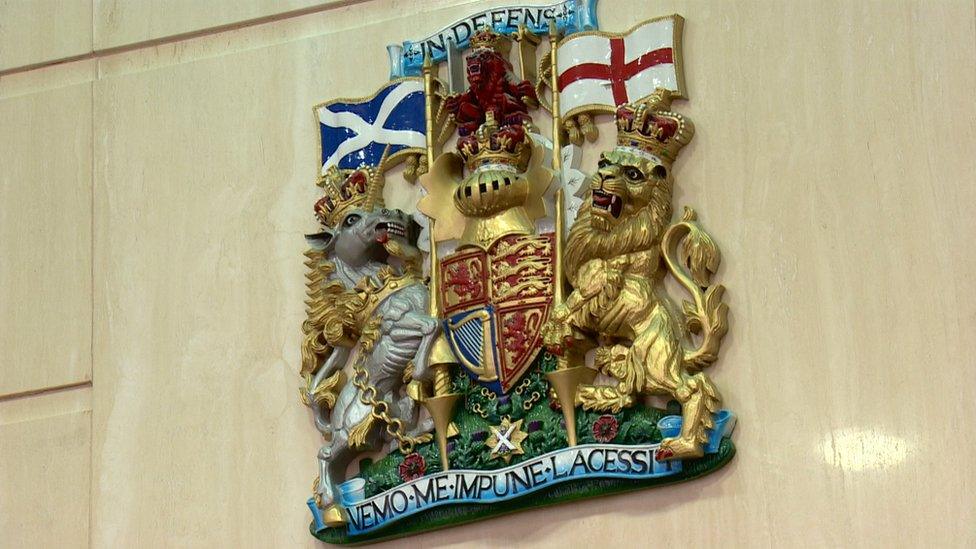
The judges met in the Inner House on Wednesday
Lord Drummond Young
Lord Young said he concluded the only inference that could be drawn was that the government, and the prime minister in particular, wished to restrict debate in parliament for as long as possible during the period leading up to the European Council meeting on 17-18 October and the scheduled date of Britain's departure from the European Union, adding that in his opinion that was not a proper purpose for proroguing parliament.
He said; "The matter clearly calls for parliamentary scrutiny. The effect of the prorogation under consideration, in particular its length, is that proper parliamentary scrutiny is rendered all but impossible."
Lord Brodie
Lord Brodie said when the action petition was first presented, those bringing the court action were not in a position to frame an argument that was subject to a court of law, but that the landscape changed with the prime minister's letter to MPs on 28 August and the disclosure to the court of copies of three redacted documents.
A UK government appeal against the ruling will be heard by the Supreme Court in London next week.
- Published11 September 2019
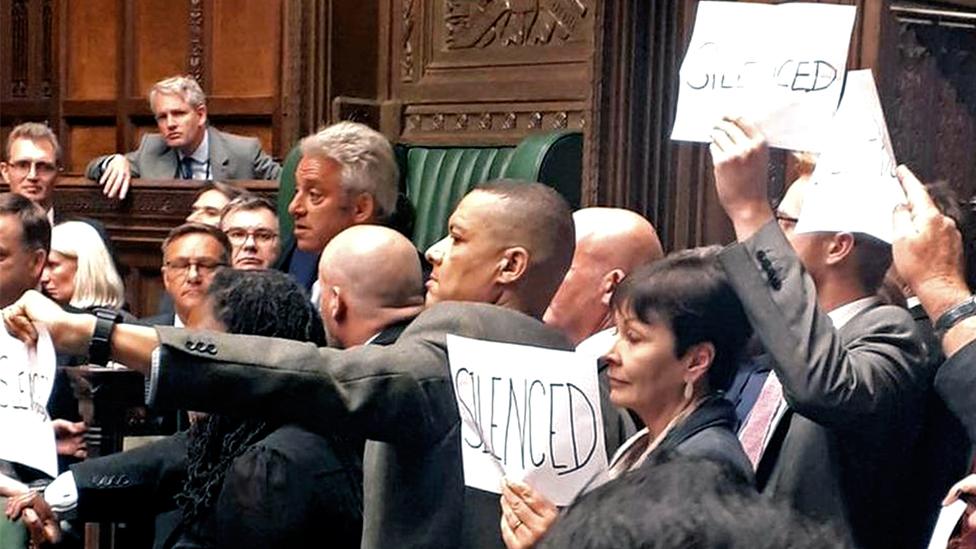
- Published11 September 2019
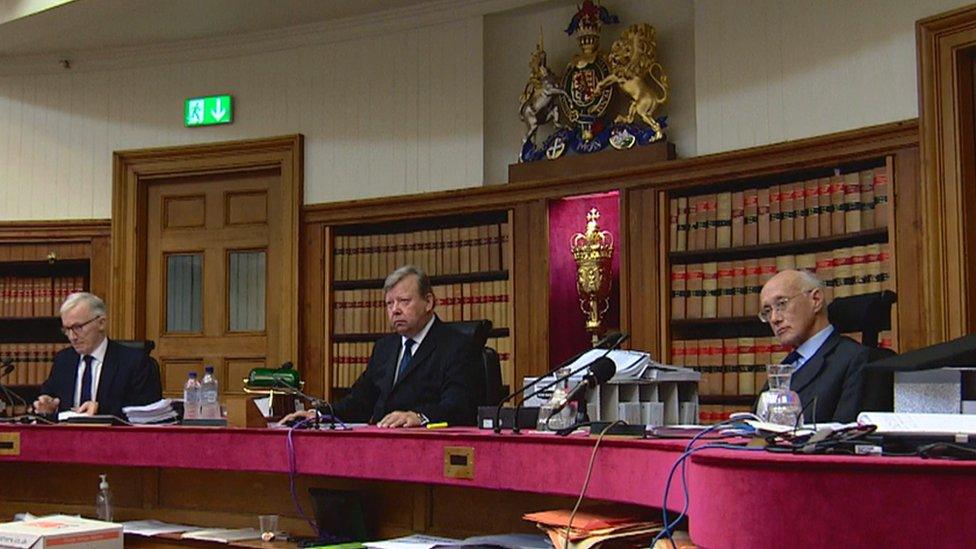
- Published13 September 2019
